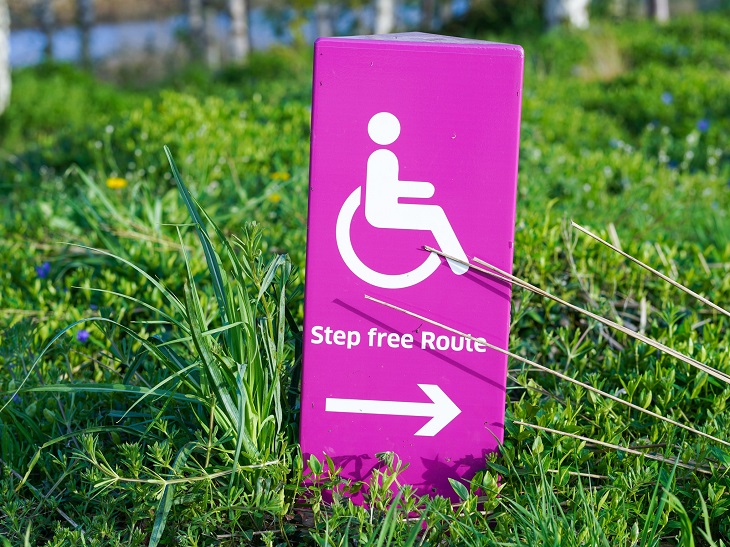In the picturesque state of New Hampshire, known for its stunning landscapes and welcoming communities, accessibility for individuals with disabilities is a priority. One crucial aspect of this accessibility is ensuring the availability of parking spaces designed for people with mobility challenges. Let’s take a look at the various facets of accessible parking in New Hampshire, including the relevant laws, tips for finding handicapped parking in Concord, the application process for accessible parking permits, disabled spaces in parking garages, and street parking options for individuals with disabilities.
Accessible Parking Laws in New Hampshire
Understanding the laws governing accessible parking is the first step in creating an inclusive environment for everyone. New Hampshire follows the Americans with Disabilities Act (ADA) guidelines, which mandate the provision of accessible parking spaces for individuals with disabilities. The law specifies the minimum number of accessible spaces required based on the total number of parking spaces available in a given location.
It’s crucial for businesses and public facilities to comply with these regulations to ensure that individuals with disabilities have equal access to services and amenities. Violations of accessible parking laws can result in fines, emphasizing the state’s commitment to maintaining an inclusive and accessible environment.
Finding Handicapped Parking in Concord: Tips and Locations
Concord, the capital of New Hampshire, is a vibrant city with a rich history. Navigating its streets is much easier when armed with knowledge about accessible parking options. To find handicapped parking in Concord, consider the following:
- Research Parking Locations: Before heading to Concord, research parking locations that offer accessible spaces. Many public facilities, including shopping centers, government buildings, and medical centers, provide designated parking spots for individuals with disabilities.
- Use Mobile Apps: Take advantage of technology by using mobile apps such as Disabled Park designed to help locate accessible parking spaces. These apps often provide real-time information about available spots, making it easier to plan your visit.
- Arrive Early: If possible, arrive early to secure an accessible parking space. Early arrivals increase the likelihood of finding an available spot and ensure a more convenient experience.

Accessible Parking Permits in New Hampshire: How to Apply
Individuals with disabilities in New Hampshire can obtain accessible parking permits, allowing them to utilize designated parking spaces. The process for obtaining a permit is relatively straightforward:
- Eligibility Criteria: Determine your eligibility for a disabled parking permit in New Hampshire. Individuals with qualifying disabilities, as defined by the state’s Department of Motor Vehicles (DMV), are eligible for permits.
- Consult Your Healthcare Provider: Schedule a consultation with your healthcare provider to discuss your need for an accessible parking permit. They will assess your condition and provide the necessary documentation to support your application.
- Complete the Application: Obtain the accessible parking permit application from the New Hampshire DMV website or visit a local DMV office. Complete the application, providing all required information and attaching the supporting documentation from your healthcare provider.
- Submit the Application: Submit the completed application to the DMV, either in person or by mail. Be sure to include any required fees, and check the DMV website for the most up-to-date information on fees and submission methods.
NH Parking Garages with Disabled Spaces
Parking garages are integral parts of urban landscapes, and New Hampshire offers accessible options for individuals with disabilities. When utilizing parking garages, consider the following:
- Check for Designated Spaces: Before entering a parking garage, check for signs indicating the location of designated accessible parking spaces. These spaces are typically situated close to elevators or ramps for easier access.
- Contact Garage Management: If you have specific questions about the availability of accessible parking in a particular garage, don’t hesitate to contact the management. They can provide information about the number of spaces, their location, and any additional amenities.
Street Parking for People with Disabilities in New Hampshire
While parking garages are common in urban areas, street parking is prevalent in many neighborhoods. Here are some tips for individuals with disabilities seeking street parking in New Hampshire:
- Check for Street Signs: Look for street signs indicating accessible parking spaces. These spaces are typically marked with the International Symbol of Access and may have time restrictions that differ from regular parking spaces.
- Be Aware of Regulations: Familiarize yourself with local parking regulations, as they can vary by city and neighborhood. Understanding these regulations ensures compliance and a smoother parking experience.
***
New Hampshire is committed to fostering an inclusive environment for all its residents and visitors, and accessible parking plays a vital role in achieving this goal. By understanding accessible parking laws, utilizing available resources, obtaining the necessary permits, and being mindful of parking options in specific locations like Concord, individuals with disabilities can navigate the state with greater ease and independence. Whether in parking garages or on the streets, New Hampshire strives to make mobility accessible for everyone, ensuring that the beauty of the state is enjoyed by all.
Featured image by Seth Dewey on Unsplash

